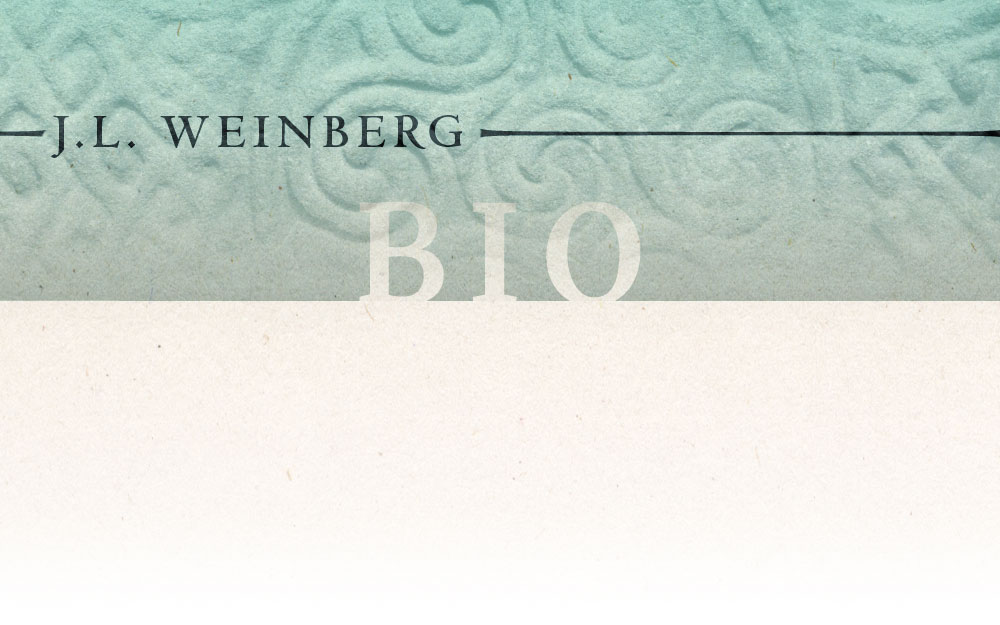J. L. Weinberg was born and raised in San Francisco, California. He grew up during the heyday of the 1960s counterculture. From the time he was a teen, he was influenced by the psychedelic lifestyle, music, poster art, and political views that San Francisco exported to the rest of the world.
After graduating from Lick Wilmerding High School, an institution that encouraged non-violent civil engagement, Weinberg attended the University of California at Davis, where he received a B.A. in English, summa cum laude. As a third-year exchange student, he studied English literature at the University of Birmingham, England. A course in Shakespeare allowed him to attend the theater and seminars hosted by the Royal Shakespeare Company in Stratford-upon-Avon. His modern lit tutorial and seminars explored the writings of D. H. Lawrence and Virginia Woolf, two writers who became life-long influences.
After graduating from college, and following a year working for a Bay Area film distributor, Weinberg moved to New York City to attend New York University Film School with the goal of becoming a movie critic. In addition to his cinematic studies, he wrote and directed an experimental short film, Hieroglyph, which was nominated for a Student Academy Award and was screened at Joseph Papp’s Public Theater in New York and the Los Angeles Film Festival. He also worked with NYU directing students, and was cast in several movies, prompting him to find work as an actor and print model. He appeared in independent films and music videos shot in New York, including David Bowie’s Fashion video.
Weinberg began his freelance journalism career in the mid-1980s, reviewing films and writing about movies, actors, and directors for New York, Premiere, The Village Voice, Interview, American Cinematographer, The Advocate, and The New York Native. He is the author of 450 capsule film reviews for the Blockbuster Video Guide to Movies and Videos, published by Island Books.
In the wake of a near-death experience in the New Jersey countryside involving a murderous ghost in 1988, Weinberg decided to write a fictionalized treatment of the events. In preparation, he conducted several years of research into the history of Bucks County, Pennsylvania; ghosts; paranormal occurrences; witchcraft; and life after death. He also explored various religious traditions, including Christianity, the Old Religion of Europe, New Age, and Egyptian and Native American spirituality.
As Weinberg delved further into research, he gave up journalism to focus on what would become True Religion, his debut novel. Chelsea Station Editions, a boutique New York press specializing in quality gay literary works, acquired True Religion in 2012. After an extensive rewrite, the book was published on October 31, 2015.
True Religion has been described as a genre-bending fusion of paranormal horror, American history, and New Age enlightenment. An unexpected encounter with a ghost in Pennsylvania’s Orenda Valley sends Seth Davis, a gay journalist from Manhattan, on a religious journey. Along the way, Seth stumbles into a quarreling coven of witches in Hope Springs, the most haunted town in America. As Seth learns about the town’s history, he uncovers his own past, and must determine the fate of the coven and the Orenda Valley.
True Religion received exemplary reviews from Lambda Literary, Out in Jersey, and Amos Lassen, among other outlets. The ambitious scope of the book, especially for a first novel, was universally noted.
Weinberg’s upcoming projects include a book of erotic tales and a sequel to True Religion.




